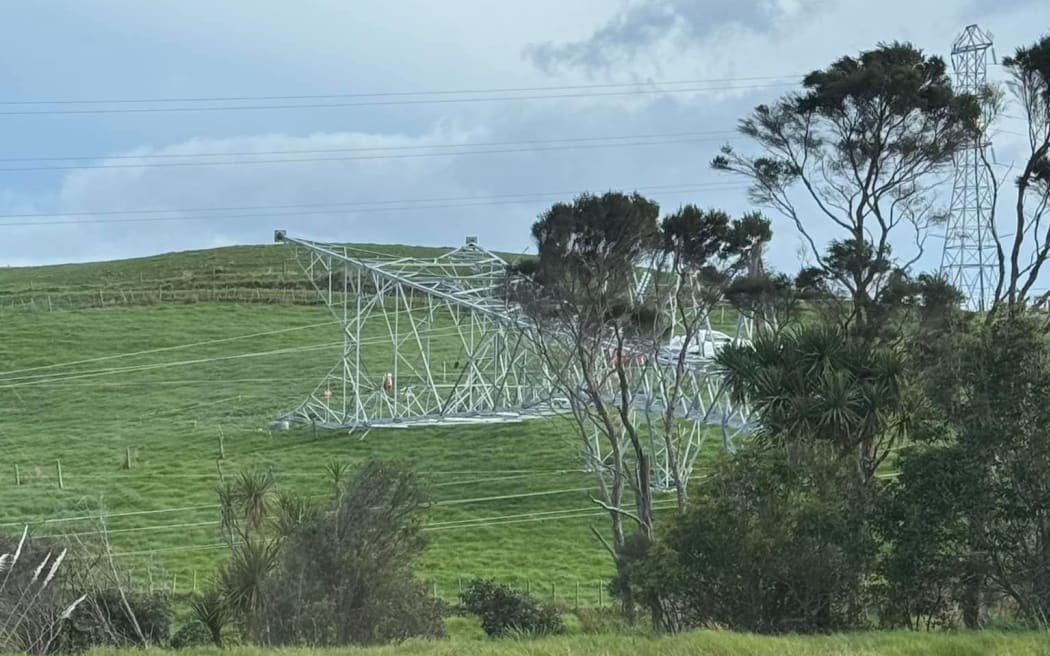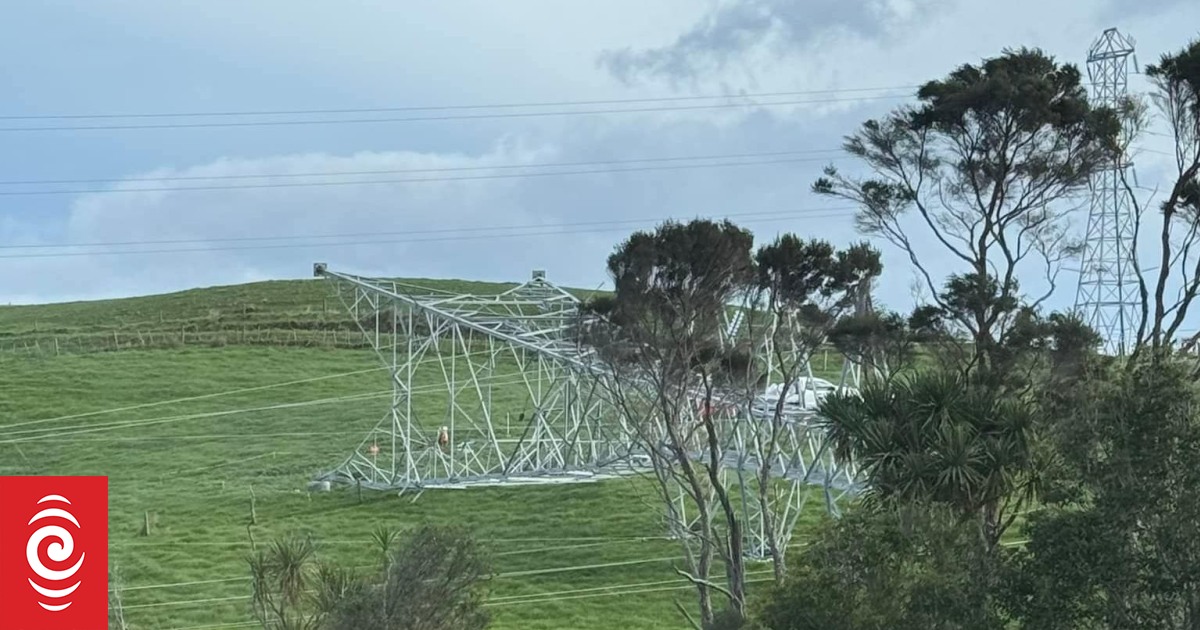
The pylon fell on Thursday, causing a power outage to most of Northland.
Photo: Supplied / Kawakawa Electrical Ltd
Northland businesses are considering banding together to seek compensation for losses suffered when a pylon fell over last Thursday, cutting power to more than 100,000 homes and businesses.
Northland Chamber of Commerce chief executive Darryn Fisher said the Consumer Guarantees Act suggested by Transpower as an avenue for compensation applied only to retail customers, not to businesses.
“So businesses are essentially left with their insurer, and whatever their policy provides,” he said.
Whether losses would be covered depended on the business’ policy and insurance provider.
“That’s where you need to get some one-on-one advice and look at the terms and conditions of your policy. But we’ll also be doing that broadly, trying to bring a bit of overall perspective to our members in the coming days,” Fisher said.
However, even if an insurance claim was successful, it still came at a significant cost to the business.
“If you were to make a claim you’d have excess to pay, your premium is likely to go up, and you’ll lose your no-claims bonus – so that’s pretty unfair on our members.”

Northland Chamber of Commerce chief executive Darryn Fisher.
Photo: RNZ / Peter de Graaf
Fisher said it was particularly unfair given Transpower’s contractor had admitted fault by removing the nuts securing the pylon to its base on three out of four legs at once.
He said NorthChamber had sought legal advice and was considering other avenues for compensation, such as by making a collective claim on behalf of its members.
“I don’t think we’re just going to leave it to insurers. It’s something we’re working on as a membership group and seeing what we can do.”
Earlier today, Consumer New Zealand chief executive Jon Duffy told Morning Report that households could seek compensation through the Consumer Guarantees Act.
To do so, however, they need to have suffered a loss, and they had to approach their power retailer in the first instance.
Those claims could then be passed on to Transpower.
Businesses, however, could not make a claim under the Consumer Guarantees Act, and would likely to have to rely on insurance.
Each insurance policy had its own terms and conditions.
Most policies had exclusions for what was termed “acts of god” – such as the outages caused by Cyclone Gabrielle last year – but that did not cover human error, as was the case with the downed pylon.
Duffy also pointed out that businesses would have to weigh up any insurance payout they received against the excess they would have to pay.
“So it’s a tricky situation for businesses,” he said.
Fisher said the losses felt by households would be relatively small, given that most had power at least partially restored on Thursday evening.
The biggest losses were suffered by major industrial power users, some of which were only able to return to full production this week.
Hospitality businesses spoken to by RNZ reported losing thousands of dollars’ worth of perishable stock such as dairy and meat.
Even for households, the path to compensation is far from easy.
The law requires households to approach their power retailer in the first instance, but Fisher said he had examined the terms and conditions of one major power supplier, which stated the company was not liable if it was not at fault.
The fine print stated the claim could be passed on to another company – such as Transpower or its contractor – but that company would be liable only if it was a member of the Utilities Tribunal.
Even if the power retailer was at fault, its maximum liability was $10,000, Fisher said.
Last Friday, economics consultants Infometrics estimated the power cut could cost Northland a total of $60 million.




